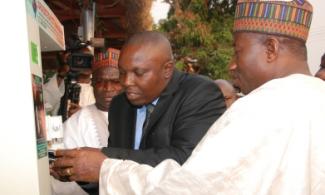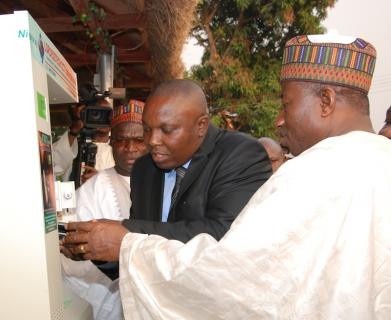
The statements and assertions of Mr. Timi Frank and others that President Jonathan failed to deliver on power sector reforms are to say the least political, mischievous, specious, and filled with smoke and mirrors, innuendos and intellectual sleight of hand, the objective is to inject politics into our economic development.

It is undeniable that a year after it was almost in place, the transformation agenda on power reform has significantly succeeded in delivery of President Jonathan promise, even as it fell short in some ways. It is imperative to note that President Jonathan is the first president to really use the levers of the Presidency to correct the problems in the power sector. Despite recent successes, Nigeria faces many challenges in sustaining the growth in the sector and improving its development indicators.
To illustrate the point, consider the establishment of a well-structured regulatory agency, Nigerian Electricity Regulatory Commission (NERC) and its reconstituted Board; incorporation of Nigeria Electricity Liability Management Company Ltd (NELMCO); establishment of the Nigerian Bulk Trading PLC (NBET); establishment of the Electricity Management Services to provide ancillary and support services to the Nigerian Electricity Supply Industry; introduction of cost reflective tariffs; establishment of Transmission Company of Nigeria (TNC) and engagement of a management contractor - Manitoba Hydro of Canada; privatization of generation companies (GENCOS); privatization of distribution companies (DISCOS) and establishment of the National Gas Plan.
Challenges and resentments of energy sector reform in general and power sector in particular in emerging economy such as Nigeria is ubiquitous. This can be due to widespread perception that it does not serve the interests of the population at large. Also, cost reflective tariffs, power failure, cut off non-payers, loss of jobs and the perception that only special interest are served are some of the reasons for the resentment. Furthermore, some see power sector reform as serving oligarchic domestic and foreign interest and profit at the expense of the country. These are not recompense by any gain from the reform because gains such as expanded coverage, improved quality and competitive tariffs are small, disperse and slow, whereas the impact of price hikes and job losses is concentrated, immediate and falls on visible and vocal groups such as labor unions.
Mr. Atedo Peterside, Chairman National council on Privatisation (NPC) in expressing his thoughts on potential challenges to the reform process said, “… unless Nigeria’s power transmission weakness is not dealt with by 2014, there will be a crisis when the ten National Integrated Power Plants (NIPP) come on stream. Another major problem that could hamper regular power supply is inadequate gas to fire the gas thermal stations. Transmission he said, “is the life-blood of this entire electricity eco-system and it is also potentially the weakest link at present. I am reliably informed that, currently, stranded capacity due to transmission evacuation constraints is in the region of 100 MW. The other weak link is gas supply and gas transportation, as Nigeria is predominantly reliant on gas-fired power plants. While gas supply constraints arising from capacity shortfalls/lags can be foreseen, the impact induces damaging shocks to the health of the entire electricity value chain.”
The Jonathan administration true to its transparency in the reform process identified these challenges and is doing something about it. Power sector reform is not an easy task as it takes time and resources to overcome. The United States the most developed and technological savvy economy in the world went through challenges in its electricity sector reform process. Take for example, California whole sale market reform of 1998 that led to challenges defied experts’ prediction. The constant power failures and rolling blackouts are still fresh in our memories.
It is not enough to criticize the president’s policies but to proffer solutions to such criticism. I cannot but end this reply with the words of President Barak Obama, “We, the People, recognize that we have responsibilities as well as rights; that our destinies are bound together; that a freedom which only asks what's in it for me, a freedom without a commitment to others, a freedom without love or charity or duty or patriotism, is unworthy of our founding ideals, and those who died in their defense.”